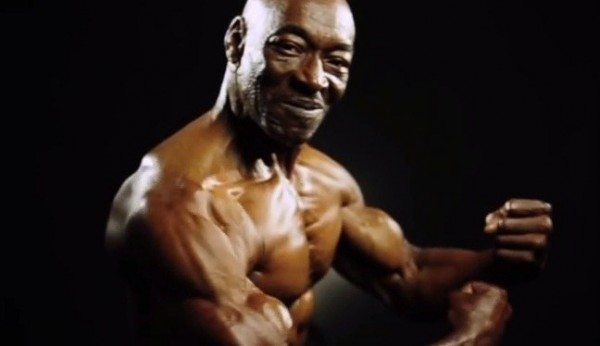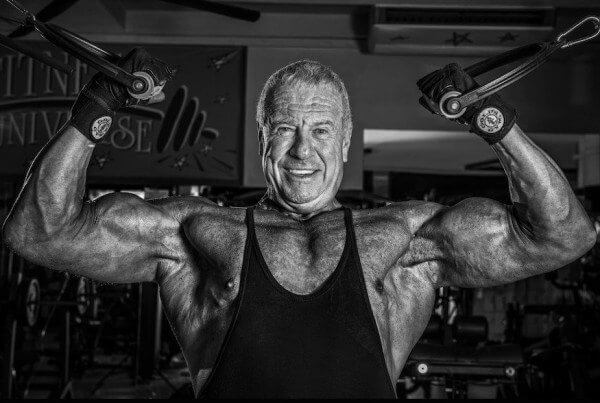Time to re-think ageing! A good bodybuilding regime can make age irrelevant. Discover how to keep building muscle as you get older, and well into your 50s, 60s, 70s and even 80s!
Stay Fit, Strong and Healthier for Longer
Let’s face it – we are all growing older, and there is nothing we can do to stop the years ticking by. But as bodybuilders, we can take steps to ensure that hard work we do in the gym isn’t thrown away as the years pass. There are proven ways to adapt our bodybuilding techniques so that we can continue to build muscle and stay fit as we move into the next phase of our lives.
Listen to Your Body
Let’s face it. When you are in your 20s you can get away with a lot. You can party all night, wake up, go to work and then have a fantastic workout in the evening. Your recuperative abilities are at their height. As you age, however, your ability to recover diminishes. But don’t misunderstand. This doesn’t mean you have to spend all day on the couch watching TV. It just means you need to listen to your body.
If you have always been in the habit of lifting heavy and find that lately some exercises cause you more pain than others, go lighter. Using easier weights and doing more repetitions per set will still help you build muscle. By using lighter weights in conjunction with an increase in the time that you perform the eccentric and concentric phases of the lift, you’ll make your workout more challenging and increase lean mass. If you lift the weights slowly and train to failure, you’ll get results that are similar to using heavy weight.
Keep Protein Intake High
Bodybuilders know that they need a lot of protein in order to gain lean mass and to maintain it. As you age, metabolism slows down and this makes many people decrease the amount food they eat. This means a decrease in protein, carbohydrates, and fats. While slightly decreasing carbohydrate intake might be a good idea, decreasing the amount of protein you consume is a very bad idea.
Researchers conducted a study on how diet affects muscle health. The study involved 20 participants and their ages ranged from 52 to 75. Participants were divided into four groups and protein intake and timing varied among these groups. Two groups consumed 0.8 grams of protein per day. Out of these two groups, one group split their protein intake among various meals throughout the day and the other group consumed most of that protein for dinner.
The other two groups consumed double that amount, 1.5 grams of protein per day, and their consumption mimicked that of the first group. The group consuming twice the recommended daily allowance of protein improved protein synthesis and net protein balance. This increase in synthesis means less fat and more muscle.
Stretch It Out
Warming up and stretching is advised for all age groups, but as you get older it becomes even more important. As you age, muscles and joints tend to lose some of their elasticity. A good way to maintain or improve elasticity is through stretching. If you feel any tightness in your muscles, start stretching. If you experience tightness anywhere in your body, start stretching those muscles and hold the stretch. You can hold the stretch for 10 seconds or 60 seconds.
It all depends on which length of time gives you the most relief. You should never stretch in a way that causes you pain, so if your stretch is increasing pain decrease the angle of your stretch and then gently increase the angle until only the stretch is felt.
Aim for Muscle Stimulation
There is a saying that goes ‘no pain, no gain.’ While some pain and fatigue are normal when working out, constant pain, and feeling like you’ve just been hit by a bus after exercising is not normal. There is no need to approach every workout as though you are competing for an Olympic medal. Your goal should always be to stimulate your muscles to grow.
That is easily accomplished by choosing a weight that allows you to do up to eight repetitions per set. If you constantly train heavy with low reps, you’re going down the wrong path. This is overtraining and this leads to injury and will actually make you lose lean mass instead of gaining it.
Look Great for Life
Getting older doesn’t mean you can’t build muscle. Your body is always trying to get stronger, move faster and go further. Listen to your body, eat lots of protein, stretch and always seek to stimulate your muscles. Your muscle building journey is exactly like your life journey, as you get older, it changes.





